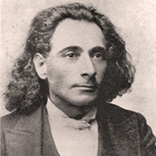 “Hatikvah” is the national anthem of Israel. Its lyrics are adapted from a poem written by Naphtali Herz Imber, (1856 – October 8, 1909) a Jewish poet. The romantic anthem’s theme reflects the nearly 2000-year-old hope of the Jewish people to return to the Land of Israel—their ancient homeland—and to restore it and reclaim it as a sovereign nation.
“Hatikvah” is the national anthem of Israel. Its lyrics are adapted from a poem written by Naphtali Herz Imber, (1856 – October 8, 1909) a Jewish poet. The romantic anthem’s theme reflects the nearly 2000-year-old hope of the Jewish people to return to the Land of Israel—their ancient homeland—and to restore it and reclaim it as a sovereign nation.
A historic recording of a 1945 BBC broadcast from liberated Bergen-Belsen, a Nazi concentration camp, featuring the singing of “Hatikva” by the surviving Jewish prisoners. Allied troops liberated the camp on April 15, 1945.
Bergen-Belsen was a Nazi concentration camp in Lower Saxony, southwest of the town of Bergen near Celle. Between 1943 and 1945, an estimated 50,000 people died there, up to 35,000 of them dying of typhus in the first few months of 1945. On April 15, 1945, British forces liberated the Bergen-Belsen concentration camp in northern Germany. Sixty-thousand prisoners were living in the camp when the troops arrived, most of them seriously ill. Thousands more lay dead and unburied on the camp grounds.
BBC reporter Patrick Gordon Walker was among the press corps that entered Bergen-Belsen with the British troops that day. Over the next few weeks, he documented what he saw, recording the first Sabbath ceremony openly conducted on German soil since the beginning of the war, interviewing survivors, and speaking to British Tommies about what they had witnessed at liberation.
One of the people who heard Walker’s radio dispatches was soon-to-be-legendary folk-music producer Moe Asch. An engineer at the time at New York radio station WEVD, Asch recorded the shortwave broadcast onto an acetate disc. Decades later, the record was re-discovered at the Smithsonian Institution by historian Henry Sapoznik.
Our hope is not yet lost,
The ancient hope,
To return to the land of our fathers;
The city where David encamped.
As long as in his heart within,
A soul of a Jew still yearns,
And onwards towards the ends of the east,
His eye still looks towards Zion.
As long as tears from our eyes
Flow like benevolent rain,
And throngs of our countrymen
Still pay homage at the graves of our fathers.
As long as our precious Wall
Appears before our eyes,
And over the destruction of our Temple
An eye still wells up with tears.
As long as the waters of the Jordan
In fullness swell its banks,
And down to the Sea of Galilee
With tumultuous noise fall.
As long as on the barren highways
The humbled city-gates mark,
And among the ruins of Jerusalem
A daughter of Zion still cries.
As long as pure tears
Flow from the eye of a daughter of my nation
And to mourn for Zion at the watch of night
She still rises in the middle of the nights.
As long as the feeling of love of nation
Throbs in the heart of a Jew,
We can still hope even today
That a wrathful God may have mercy on us.
Hear, oh my brothers in the lands of exile,
The voice of one of our visionaries,
[Who declares] that only with the very last Jew,
Only there is the end of our hope!